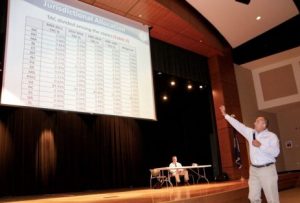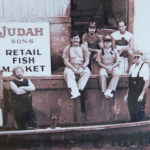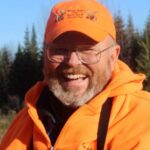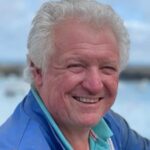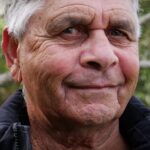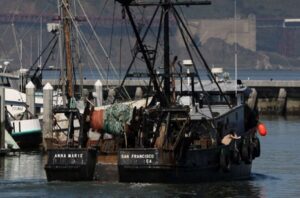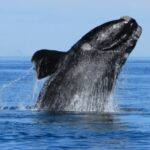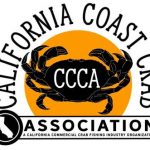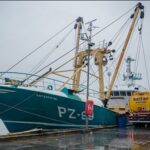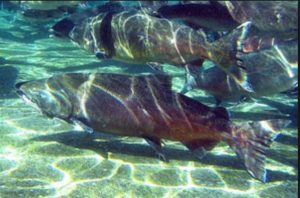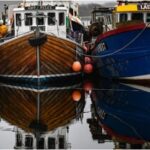Daily Archives: February 9, 2017
North Pacific Fishery Management Council gets review of Bering Sea pollock program
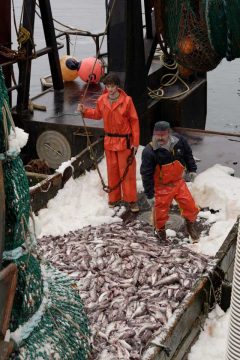 After two years of almost ceaseless contention, the North Pacific regulatory waters have cooled down for now. The Council oversees all federal fisheries between three and 200 miles off the Alaska coast. One of eight regions, the North Pacific fishery is by far the country’s most profitable, having produced two-thirds of the country’s total seafood value in 2015. Over the last two years, the council has been in battle mode over chinook salmon and halibut bycatch, and Gulf of Alaska groundfish catch shares. There have been parades of protest and industry stand-downs and rural Alaska villages emptied to give impassioned pleas alongside Seattle fishing crews and captains. At the council’s Seattle meeting Feb. 1-6, the council rested for the most part, taking scant public comment and few final actions. Rather, it focused on some of the structures behind the chaos, reviewing catch share programs and looking for areas to tune up following two years of pushing the gas. After indefinitely tabling a Gulf of Alaska catch share system four years in the works at its meeting this past December, the council reviewed the schematics behind the Bering Sea pollock fishery, Alaska’s largest fishery by volume. Read the rest of the article here 20:36
After two years of almost ceaseless contention, the North Pacific regulatory waters have cooled down for now. The Council oversees all federal fisheries between three and 200 miles off the Alaska coast. One of eight regions, the North Pacific fishery is by far the country’s most profitable, having produced two-thirds of the country’s total seafood value in 2015. Over the last two years, the council has been in battle mode over chinook salmon and halibut bycatch, and Gulf of Alaska groundfish catch shares. There have been parades of protest and industry stand-downs and rural Alaska villages emptied to give impassioned pleas alongside Seattle fishing crews and captains. At the council’s Seattle meeting Feb. 1-6, the council rested for the most part, taking scant public comment and few final actions. Rather, it focused on some of the structures behind the chaos, reviewing catch share programs and looking for areas to tune up following two years of pushing the gas. After indefinitely tabling a Gulf of Alaska catch share system four years in the works at its meeting this past December, the council reviewed the schematics behind the Bering Sea pollock fishery, Alaska’s largest fishery by volume. Read the rest of the article here 20:36
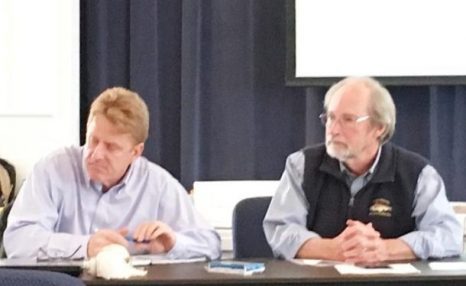
Mass DMF gets an earful from conch fishermen, David Pierce mentions squid trawling
Officials from the Division of Marine Fisheries on their annual rounds to inform fishermen of proposed regulations for 2017 held a public hearing at the Katharine Cornell Theater in Tisbury on Wednesday morning. A lengthy agenda cast a wide net on changes in proposed limits to finfish and shellfish, but the most spirited debate by far was over a proposed increase to the minimum size of channel whelk and knob whelk, often referred to as “conch,” for this year. DMF director David Pierce and deputy director Dan McKiernan moderated the discussion. Local fishermen portended dire economic circumstances if the current minimum size, measured at the shell’s widest point, is increased from 3 inches to 3 3⁄16 inches. DMF officials countered that without the increase, the future of the conch fishery, the most valuable fishery on Martha’s Vineyard, will be in serious jeopardy in a matter of years. Prior to the start of the public hearing, DMF director David Pierce said that while on vacation on Martha’s Vineyard last year, he picked up a copy of The MV Times and read the Sept. 7 story, “Squid trawlers leave a wake of death south of Martha’s Vineyard” that described the miles of dead by-catch — mostly squid and scup — left behind by squid trawlers operating just outside the three-mile state limit south of Martha’s Vineyard. Read the story here 17:04
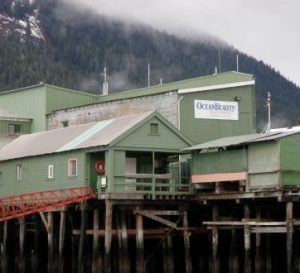
Ocean Beauty won’t can salmon in Petersburg in 2017
Petersburg will only have one salmon cannery operating this summer. Ocean Beauty Seafoods will not be canning fish at the company’s plant in Petersburg in 2017. Tom Sunderland, vice president of marketing, says current market conditions favor selling frozen salmon over canned. “We’re gonna make a lot more money selling frozen salmon than canned salmon this year and the Petersburg plant is essentially a cannery,” Sunderland explained. “It doesn’t have a very large or efficient freezing operation, certainly not enough that you could run it just as a freezing operation. Our plant at Excursion Inlet on the other hand does have substantial freezing capacity and we can move that production over there and take care of that. And by doing so, the hope is we can return the highest value to the fleet by putting the product into its most lucrative product form.” Read the rest here 12:40
Maine lawmaker proposes ban on wind turbines near Monhegan
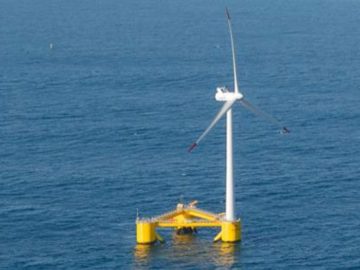 Sen. Dana Dow, R-Damariscotta, wants to prohibit a wind energy test area within 10 miles of the island’s lobster conservation area. The current site is roughly 2 1/2 miles off the island. Through the Senate Republican Office, Dow issued a statement saying the project would threaten migrating birds as well as the remote, rugged beauty that draws artists and tourists. He said Mainers wouldn’t allow such a project near Mount Katahdin or Acadia National Park, which, like Monhegan, are special places. Dow’s bill reflects similar positions voiced by a group of year-round and seasonal residents and their supporters called Protect Monhegan. Other residents, however, say they support the project, but want to negotiate the best deal for the community. Read the story here 11:29
Sen. Dana Dow, R-Damariscotta, wants to prohibit a wind energy test area within 10 miles of the island’s lobster conservation area. The current site is roughly 2 1/2 miles off the island. Through the Senate Republican Office, Dow issued a statement saying the project would threaten migrating birds as well as the remote, rugged beauty that draws artists and tourists. He said Mainers wouldn’t allow such a project near Mount Katahdin or Acadia National Park, which, like Monhegan, are special places. Dow’s bill reflects similar positions voiced by a group of year-round and seasonal residents and their supporters called Protect Monhegan. Other residents, however, say they support the project, but want to negotiate the best deal for the community. Read the story here 11:29
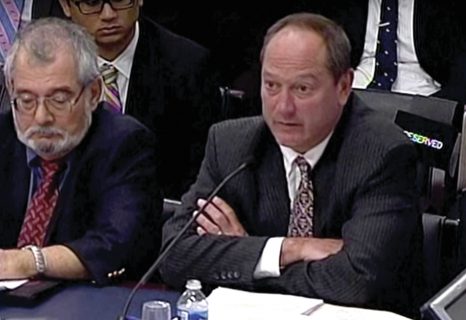
North Pacific council director a possibility for Assistant Administrator position at NMFS replacing Eileen Sobeck
Chris Oliver, the executive director of the North Pacific Fishery Management Council for the past 16 years, didn’t ask for a consideration as the new assistant administrator for the National Marine Fisheries Service; rather, the most powerful fishing industry voices in the nation’s most profitable region asked. He doesn’t know if the new administration will offer it or if he’d want it if it did. Still, looking at his history, knowledge and reputation, he seems in many ways a natural fit. Oliver said when it became known that the current administrator, Eileen Sobeck, won’t be staying with the new administration, parts of the fishing universe aligned. In the North Pacific and elsewhere, catch share systems are a contentious issue; Oliver said in an interview he’s already had fisheries stakeholders from other regions probing for what his intent would be with their respective fisheries. Oliver’s answer sums up both his attitude and in part that of the new administration. “It’s not my call,” he said. “What makes sense in the North Pacific…may not make sense in New England, or in the Gulf of Mexico. Read the story here 10:47
Chronic labour shortage hobbling Meteghan lobster plant
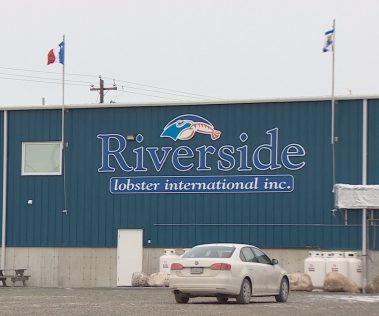 David Deveau is doing everything he can to find and keep local workers for his modern lobster processing plant in western Nova Scotia, but it is a battle he is losing. “We do have great local people here. I love them all. I respect them all,” said Deveau, CEO of Riverside Lobster International in the Meteghan area. “I don’t have enough. I just don’t have enough.” Deveau’s company now operates five buses daily to bring workers in from Digby and Yarmouth. Workers are paid about $13 per hour and enrolled in a defined contribution pension plan and get health benefits. The plant, which employs 300 people processing 27,000 kilograms a day of fresh and frozen lobster, is chronically short between 20 to 30 workers. Read the story here 09:52
David Deveau is doing everything he can to find and keep local workers for his modern lobster processing plant in western Nova Scotia, but it is a battle he is losing. “We do have great local people here. I love them all. I respect them all,” said Deveau, CEO of Riverside Lobster International in the Meteghan area. “I don’t have enough. I just don’t have enough.” Deveau’s company now operates five buses daily to bring workers in from Digby and Yarmouth. Workers are paid about $13 per hour and enrolled in a defined contribution pension plan and get health benefits. The plant, which employs 300 people processing 27,000 kilograms a day of fresh and frozen lobster, is chronically short between 20 to 30 workers. Read the story here 09:52
Decision on preliminary injunction on offshore sale in ‘coming days’
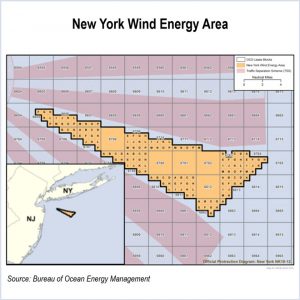 A US court is expected to issue a ruling in the coming days on a lawsuit seeking a preliminary injunction against the development of the up to 1GW New York offshore wind farm lease area. The Fisheries Survival Fund (FSF), which represents the majority of the limited access Atlantic scallop fleet, is the lead plaintiff in the lawsuit that alleges the Bureau of Ocean Energy Management (BOEM) leasing process did not adequately consider the impact of wind power development on the region’s fishermen. The plaintiffs, which also include the Garden State Seafood Association and the Long Island Commercial Fishing Association, argue that allowing the lease sale to go through would cause irreparable harm to commercial fishermen. Norwegian oil major Statoil won the December auction for the right to develop the 32,000-hectare site off the coast of Long Island with a bid of $42.5m. BOEM has delayed execution of the lease until the court has ruled on the preliminary injunction. Link 09:33
A US court is expected to issue a ruling in the coming days on a lawsuit seeking a preliminary injunction against the development of the up to 1GW New York offshore wind farm lease area. The Fisheries Survival Fund (FSF), which represents the majority of the limited access Atlantic scallop fleet, is the lead plaintiff in the lawsuit that alleges the Bureau of Ocean Energy Management (BOEM) leasing process did not adequately consider the impact of wind power development on the region’s fishermen. The plaintiffs, which also include the Garden State Seafood Association and the Long Island Commercial Fishing Association, argue that allowing the lease sale to go through would cause irreparable harm to commercial fishermen. Norwegian oil major Statoil won the December auction for the right to develop the 32,000-hectare site off the coast of Long Island with a bid of $42.5m. BOEM has delayed execution of the lease until the court has ruled on the preliminary injunction. Link 09:33
Gillnetter heeds siren call of the river – Fishing, family, community. That’s Crouse’s melody.
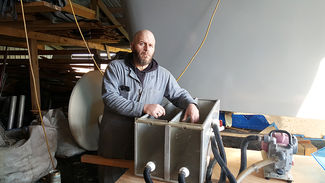 Crouse didn’t come from a fishing family but he grew up in a neighborhood of fishermen in Skamokawa. “For as long as I can remember I wanted to fish the river,” Crouse said. “In kindergarten they had us make plates out of clay and I drew a gillnet boat on mine.” When he was 14, he asked his basketball coach, Bill Olsen if he could work for him on the river. At 15, he went to Alaska to fish during the summer. “Paul Dretsch worked in a cannery up there and he told me to work there until I found a job on a boat,” Crouse said. “There is a radio station in the Bristol Bay area, and every three hours job listings came up. After my second shift in the cannery, I called someone who was advertising for boat board fish picker. That was my first job up there.” It was everything he wanted and it was more difficult than he had imagined. In his mid-40s now, Crouse works at Wauna four days a week and waits to hear when he can get back out on the river. He rebuilds boats and buys outfits from retiring fishermen when he can. He’ll take what he needs and part and parcel out the rest to sell. His wife, Erla, drives a school bus and works at her coffee shop in Cathlamet, Waterway Espresso. Read the story here 09:16
Crouse didn’t come from a fishing family but he grew up in a neighborhood of fishermen in Skamokawa. “For as long as I can remember I wanted to fish the river,” Crouse said. “In kindergarten they had us make plates out of clay and I drew a gillnet boat on mine.” When he was 14, he asked his basketball coach, Bill Olsen if he could work for him on the river. At 15, he went to Alaska to fish during the summer. “Paul Dretsch worked in a cannery up there and he told me to work there until I found a job on a boat,” Crouse said. “There is a radio station in the Bristol Bay area, and every three hours job listings came up. After my second shift in the cannery, I called someone who was advertising for boat board fish picker. That was my first job up there.” It was everything he wanted and it was more difficult than he had imagined. In his mid-40s now, Crouse works at Wauna four days a week and waits to hear when he can get back out on the river. He rebuilds boats and buys outfits from retiring fishermen when he can. He’ll take what he needs and part and parcel out the rest to sell. His wife, Erla, drives a school bus and works at her coffee shop in Cathlamet, Waterway Espresso. Read the story here 09:16
Hooked Up!!! Catch Share Politics – ‘Sea Lords’ hook a congressional reformer
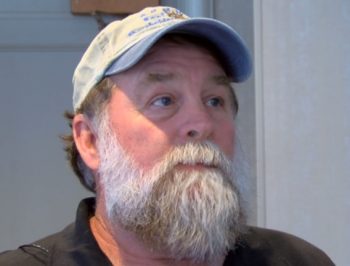 Steve Southerland agrees: He was something of a threat to some commercial fishermen. The former Florida congressman led the effort to change a federal program (catch shares) – unknown to most taxpayers – that allows a handful of businesses and fishermen to make millions off a government resource, creating what some fisherman call “lords of the sea.” The government essentially decides who will be a successful commercial fisherman and who will not.” And it doesn’t matter how hard you work,” Southerland says. “It doesn’t matter, you know, how much money you have to… That you’ve borrowed. It’s all based on a philosophy. And if you believed in that philosophy, then you win.” Southerland took to the floor of Congress, trying to make changes. In response, the same commercial fishermen profiting off this government resource poured tens of thousands of dollars into the campaign account of Southerland’s congressional opponent. Those same fishermen contributed additional money to a political action committee called Ocean Champions that also went after Southerland. “I think that it was a group of fishermen that worked towards that,” says Galveston, Texas commercial fisherman Buddy Guindon. “Mostly guys out of Florida. I didn’t have much to do with it. I contributed a little money to them.” Video, Read the story here 08:25
Steve Southerland agrees: He was something of a threat to some commercial fishermen. The former Florida congressman led the effort to change a federal program (catch shares) – unknown to most taxpayers – that allows a handful of businesses and fishermen to make millions off a government resource, creating what some fisherman call “lords of the sea.” The government essentially decides who will be a successful commercial fisherman and who will not.” And it doesn’t matter how hard you work,” Southerland says. “It doesn’t matter, you know, how much money you have to… That you’ve borrowed. It’s all based on a philosophy. And if you believed in that philosophy, then you win.” Southerland took to the floor of Congress, trying to make changes. In response, the same commercial fishermen profiting off this government resource poured tens of thousands of dollars into the campaign account of Southerland’s congressional opponent. Those same fishermen contributed additional money to a political action committee called Ocean Champions that also went after Southerland. “I think that it was a group of fishermen that worked towards that,” says Galveston, Texas commercial fisherman Buddy Guindon. “Mostly guys out of Florida. I didn’t have much to do with it. I contributed a little money to them.” Video, Read the story here 08:25

































